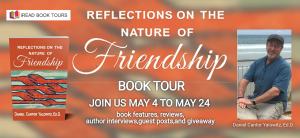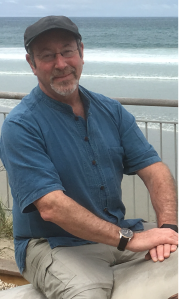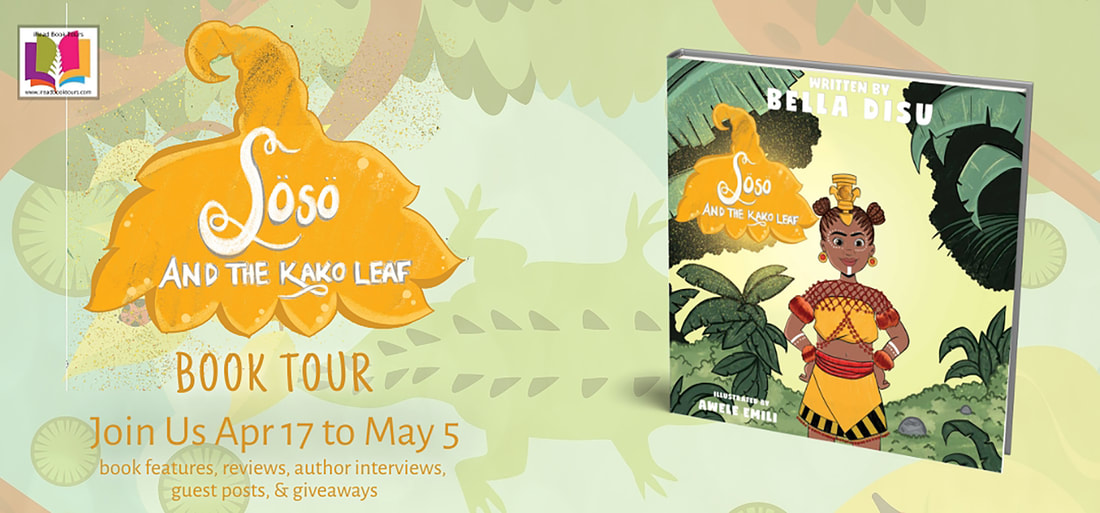Join us for this tour from May 4 to May 24, 2021!
Book Details:
Book Title: Reflections on the Nature of Friendship
Author: Daniel Cantor Yalowitz, Ed.D.
Category: Adult Non-Fiction (18+), 336 pages
Genre: Psychology, Self-Help
Publisher: Booksmyth
Release date: Feb 2021
Formats Available: print-softback, ebook
Content Rating: G. No bad language, sex scenes, or anything objectionable
[youtube https://www.youtube.com/watch?v=TOT8YYDm_HE]
Book Description:
Reflections on the Nature of Friendship is a rich, nuanced journey that delves deeply into the fascinating and complex world of friendship. Psychologist and world-traveler Dr. Daniel Cantor Yalowitz takes readers on a carefully narrated tour into the heart of what human beings need and bring to their chosen relationships. Reflections examines what makes friendships work, thrive, and connect people with one another. Using quotes across place, time, and culture, this book includes salient and seminal chapters on Identity, Longing and Belonging, Boundaries, and more, including three case studies that explore primary friendships within the author’s life. Using examples from literature, poetry, film, and music,Dr. Yalowitz brings deeper understanding about building stronger, healthier, and sustainable friendships.
Buy the Book: Amazon
MY THOUGHTS ON THIS BOOK
Daniel Cantor Yalowitz, Ed.D writes Reflections on the Nature of Friendship because there was so much going on in the world with the political situation and Coronavirus, the world needed a stable tool such as this book on friendship to look at the different types of friendships and really just what we could do to better ourselves and those around us. The questions he encourages readers to reflect on and answer that will help us dig deeper into what friendship is and its meaning. This is a book that would benefit everyone to read. Imagine if everyone read this book and followed just a fraction of what is included here, what would happen in the world? Grab a copy of this book and encourage everyone you know to do that same. And read it. It can change your life. This book is a Five Stars for me.A special thanks to the author/publisher for a copy of this book. I am not required to write a positive review, the opinions here are mine alone. I am disclosing this with my review in accordance with the Federal Trade Commission’s 16 CFR, Part 255.
An Interview with the Author
[1] Why did you write this book on friendship at this time? AT FIRST, the blocking, researching, and writing of my book, Reflections on the Nature of Friendship began as an exercise to address the increasing political bifurcation and isolation I observed that coincided so closely with the emergence of the 2020 political and presidential campaigns and elections. As groups and organizations, including the Braver (formerly, “Better”) Angels (which I co-chaired in my town for a full year in 2019-2020) searched for ways to bridge the ever-widening political divide, I felt that a book on the very nature of friendship could be and become a practical tool – and this was just on the cusp of what was then known as the “Novel Coronavirus”. Covid-19 was a dramatic step pushing all of humanity further and further apart, with new ways of having people under-relate with one another through social and physical distancing, masks, rules and laws now governing all forms of travel, vacation, family time, and virtually all other forms of interpersonal connection. I wrote and re-wrote, edited, and reframed feverishly and fervently all throughout the year in order to birth this book into the world at a time during which many people across the globe continued to struggle with relational and intrapersonal issues with little opportunity to get the intensive support that was so needed. And so, Reflections was published in early March of 2021 as my personal response to the range of mental health and personal issues and insularity that I saw was putting us over the edge, both individually and collectively.
[2] What guided you most throughout the writing and publication of your book, Reflections on the Nature of Friendship?
AMONG OTHER THINGS, I used my own world of friends and friendships as a barometer
and testing ground for my ideas. The concept of “friendship” is NOT a theoretical construct, I reasoned – although many of my thoughts, opinions, and reflections about it are based on a range of diverse psychological concepts. I interviewed myself, and my friends, at length and at depth, as to why I had and chose the friends I had, why they stayed with me, and I them, and under what circumstances these friendships could and did bloom and why they struggled, and how I could challenge myself to grow by addressing them thoughtfully and respectfully. I posited that I’m a regular person, not known to most of the world, with some but not all of the challenges many people endure, and that I was not unique as far as having and being a friend, or in being able to maintain and sustain friendships. The research I did to unearth quotes from other human beings across time, place, space, and culture only deepened my resolve to follow my thinking and to reflect back toward potential readers what we as a species have learned and taught others in terms of the complex and fascinating world of intra- and interpersonal world of relationships. Throughout, I was guided to write a book that would be easily accessible and yet challenging to anyone interested in and curious about themselves and
other people and what it takes to make friendships grow, work, and thrive.
[3] In your research and writing, how did you find friendships have been
challenged and changed due the pandemic?
THIS BECAME a tipping point during and throughout my writing of Reflections. The myriad challenges humanity has been faced with during the first three decades of the 21st century – including the race with and against time, the increasing reliance on technology, the race to preserve earth and the environment, racism, sexism and all other “—isms”, and, most recently, COVID-19 – have put a premium and a strain on friends remaining friends and the fulfillment of the promise and potential of friendship. As many cultures and human and social systems have become increasingly dependent on technology, COVID-19 pressed us to, literally, “go virtual”. With all that came with this, human contact – “touch” – virtually ceased to exist except between intimates. I believe that having to refrain from touch and contact has served
to increasingly and severely alienate us from our friends and even our loved ones with whom we do not cohabitate. In a very present sense, people had to reconsider and re-learn how to negotiate friendship and sharing and connection without contact, without in-person connection, without the opportunity to engage in the myriad and diverse experiences that friendships have always had and, to a certain extent, relied on. Redefinition and reframing
our friendships – which are, for so many of us, experiences of routine and regularity – is a slow-going and challenging process. My hope, as we individually and collectively heal from
the incredible strains and struggles of COVID-19, is that we can find our way back into the balm that friendships are.
[4] What matters most in friendship, and why?
THIS MAY BE SEEN as a “trap” question: there are no formulas or formulations, or equations and clear and defined answers here. Friends and friendships are a very personal, very extraordinary matter to each individual who decides and chooses to engage. I am extremely hesitant to come up with a focused and “correct” answer here. There is no one-
size-fits all, period. That said, I think that what is important in friendship is that we learn
to trust, to respect, to reach out to, and demonstrate compassion toward anyone whom we might consider to be a friend. Friendship is, at best, a mutually supportive and caring human relationship (whether with others or with ourselves) that can help us to feel safer, more connected, and more at ease in our life and in our world. If we find another person, anywhere in the world, who is capable of doing this day-in and day-out, we might do well to consider that individual as a friend. Friendship, we must remember, is social work: we get out of it
only as much as we put into it.
[5] You wrote in your book that conflict is integral in friendship and
something not to waste. Can you share more about why you believe
these statements?
FRIENDS HAVE an incredibly precious opportunity to draw closer through their ability to both tolerate, resolve, and transform conflict with one another. Conflict between individuals
is inevitable for human beings. Many of us have been reared and raised to believe that conflict is “bad”, it should be avoided, and we should ignore, resist, and/or deny the “temptation” to engage in conflict. In my mind, this is a wrong-minded approach. To me, the measure of any friendship or human relationship lies in the ability to come through the challenges, obstacles, and difficulties that arise between any two people. As we work through our interpersonal issues and differences, we have the potential and the opportunity to recommit to what brings and brought us together in the first place: concern, caring, compassion, and connection. I believe that if we waste the opportunities we have to respond to and hopefully resolve our “friendly” conflicts, we don’t and won’t have that chance to reflect back and know that we’ve been able to work through those tough moments. If we are able to transcend the “Zero Sum” approach to conflict, that being “I win/You lose”, and replace it with “We can both win by working it through” then we have gained greater depth, commitment, and understanding
with our friends and friendships that will stand in good stead through the test of time.
[6] What is most challenging and difficult in maintaining and sustaining
friendship?
THERE IS NO singular response I can offer to this important question. As every human being who has ever lived has had unique circumstances that have profoundly and subtly affected their growth and development, so, too, are the situations that may make it challenging for them to maintain and sustain each and every friendship over the course of their lives. There can be tremendous differences between people as to how they experience friendship and the “triggers”
that may offset or upset it at various times throughout their lifespan. Our triggers are those circumstances that affect us in negative ways and cause us to feel negative emotions in response. For example, some may be frustrated by the lack of consistent time shared with friends, while others may feel crowded or invaded by having too much time with them. In other words, one person’s triggers may lie in another individual’s comfort zone. What’s most meaningful is that
we each come to understand what our unique challenge-points are in friendship and work to recognize and cope with and manage them to the best of our ability without placing blame or
fault on anyone else.
[7] How has writing your new book impacted and influenced your own
friendships?
BY PLACING a more conscious and conscientious emphasis on all facets of friendship, I believe
I have further “awakened” and enhanced my friendships and friends. This is likely true whenever someone places additional focus and emphasis on any one thing that they do on a regular basis. With regard to my own friendships, I believe there is now a greater sense of communication, compatibility, compassion, and commitment to working through whatever differences we may
have together. Researching and writing this book has also made me much more aware of the need to offer verbal and other forms of appreciation and gratitude to my friends for both who they are and the things they do, both large and small. One thing I know for sure is true: in the history of humankind, no one and no friendship has ever been damaged by the offering of a sincere and heartfelt appreciation or compliment! Additionally, I have become more highly attuned to the importance – the necessity – of seeing everything from more than my limited perspective: I have
a great deal to learn through the asking of one simple yet profound question: Is there more? By enabling my friends to speak, even dwell, beneath the surface of most superficial exchanges, I
have found that I am encouraging them – and myself – to place greater emphasis and meaning
on what’s really happening and going on and down with them, and between us.
[8] What, if any, advice would you wish to offer your audience and readers about
friendship?
FRIENDSHIP IS a truly remarkable and precious form of “social work”. Putting in ongoing time, energy, thought, and discernment into one’s friends and friendships is likely the biggest difference-maker in developing one’s own social world and network. Daniel Goleman and his colleagues have written much over the past three decades on the impact and influence of social and emotional intelligence. I would suggest that our ability to use and manifest these particular forms of human intelligence is a huge conduit toward establishing deeper and more meaningful friendships over the full course of one’s lifespan. Friendship is many things; among them, it is a social investment that offers and brings huge and ongoing returns of the kinds of care and values that are so vital in maintaining and sustaining a healthy life and right livelihood. When Antoine de Saint-Exupery, the author of my favorite book ever, The Little Prince, wrote that “It is only with the heart that one can see rightly; what is essential is invisible to the eye”, I believe that he was reflecting on the power and potential of deep and abiding friendship.
Meet the Author:
Daniel Cantor Yalowitz, Ed.D., is a developmental and intercultural psychologist and an international consultant/trainer focusing on team-building, human intelligences, conflict transformation, and
intercultural communication and competence. He focuses his work on building greater awareness and deeper awareness of the importance of creating sustainable relationships, especially meaningful friendships. He brings all these emphases into focus in his most recent book, Reflections on the Nature of Friendship.
Enter the Giveaway:
Daniel Cantor Yalowitz's REFLECTIONS ON THE NATURE OF FRIENDSHIP Book Tour Giveaway https://widget.gleamjs.io/e.js






No comments:
Post a Comment